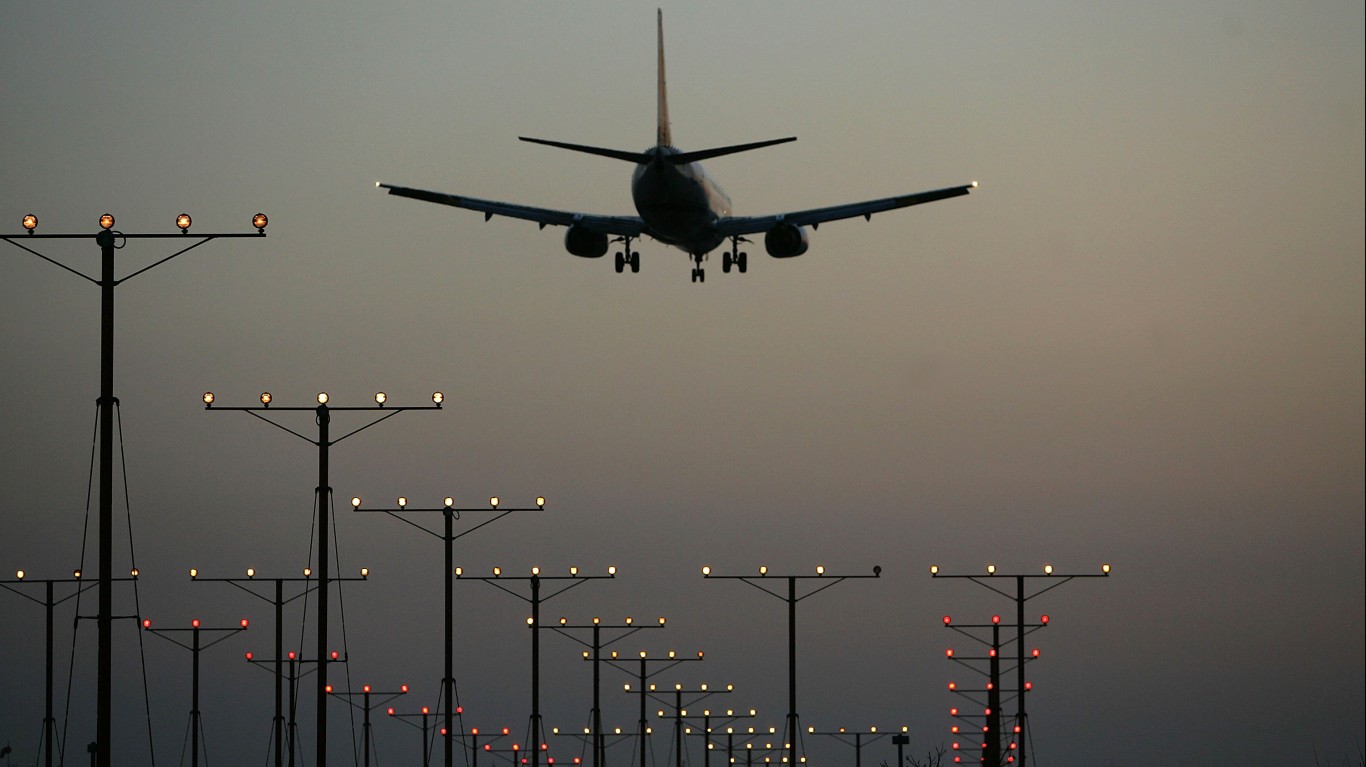
Delta Air Lines’ stock can be considered OK. It and the stock market have moved at about the same rate in the past year, with just a few percentages between them as each has traded down.
Investors must consider if Delta and the market will match each other over the next several months. A slower economy and surge in consumer prices may hammer the market. High fuel prices represent a challenge to Delta. However, help has come as passengers travel in greater numbers and pay more.
[in-text-ad]
Delta faces other challenges, however. Shortages in labor cause delays or canceled flights. While some airlines hedge fuel prices, a relentless rise represents a special challenge.
Air travel sometimes precedes both a fall-off in the economy and the resilience of the entire travel industry. Executives have access to day-by-day data. Wall Street’s chance to see traffic changes usually comes once a month. Executives can pull back prices, to some extent, quickly. Wall Street often has to take the measure of old data or rely on analyst predictions. Either can signal a worry.
While flight schedules help carriers maneuver around cost hurdles, fixed costs cannot be managed as easily. To some extent, a labor shortage means layoffs represent less of an expense reduction tool, and they continue to show the industry’s present predicament.
The cost of airplanes as well has rarely represented a great cost advantage. Their benefits act as a means to control expenses that come from fuel savings more than ownership or lease payments.
Warnings about trouble in the economy number in the dozens. Delta represents one of these.
Thank you for reading! Have some feedback for us?
Contact the 24/7 Wall St. editorial team.


